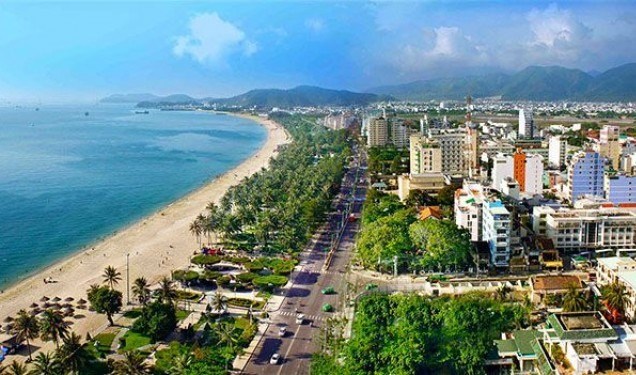
Mui Ne, a popular beach area in Phan Thiet city, the central province of Binh Thuan, is expected to become a national tourism site by 2030, heard a recent conference in the province.

Mui Ne is
expected to become a national tourism site by 2030. (Source: kenhdulich.org)
By 2025, Mui Ne would become the main resort centre of Binh Thuan
and the south-central coastal region, welcoming 10 million visitors. And by
2030, the area would meet all requirements for becoming a national level site,
with 16 million visitors and 58 trillion VND (2.5 billion USD) in tourism
revenue.
The area aims to attract new markets in central and northern Europe and the
Middle East, and will focus on beaches, sports, culture and community tourism.
Pham Trung Luong, former deputy head of the Institute for Tourism Development
Research, said to achieve the goal, Binh Thuan province should create diverse
tourism products, boost promotion and train people.
The province should also care more about environmental factors and the effects
of climate change, he added.
Lương emphasised that developing Mui Ne into a national tourism site would
boost development in the region, and links with the Central Highlands.
Representatives of tourism agencies and cultural experts in Binh Thuan and
neighbouring provinces and cities attended the conference. They called for more
investment in entertainment and traffic infrastructure.
Ngo Thanh Loan of the Ho Chi Minh City University of Social Sciences and
Humanities noted that Mui Ne’s key resource is the beach, so protecting the
natural landscape is a must during development”.
Nguyen Duc Hoa, Vice Chairman of the provincial People’s Committee, asked the
Department of Culture, Sports and Tourism to collect opinions from all
attendees at the conference.
He asked the department to submit the development plan to the People’s
Committee soon.
Source: VNA
With an increasingly vibrant and widespread emulation movement aimed at building cultured residential areas and cultured families, Yen Thuy District has been making steady progress toward improving both the material and spiritual well-being of its people, while fostering a civilized, prosperous, beautiful, and progressive community.
Once lacking recreational spaces and community facilities, Residential Group 2 in Quynh Lam Ward (Hoa Binh City) has recently received attention for the construction of a new, spacious, and fully equipped cultural house. The project followed the model of state support combined with public contributions in both labor and funding.
The "All people unite to build cultural life" movement, which has been effectively integrated with Kim Boi district’s socio-economic development goals, is fostering a lively spirit of emulation across local residential areas, hamlets, villages, public agencies, and enterprises. In addition, through the initiative, traditional cultural values are being preserved and promoted, while community solidarity and mutual support in poverty reduction and economic development are being strengthened.
A working delegation of the Hoa Binh provincial People’s Committee led by its Permanent Vice Chairman Nguyen Van Toan on June 11 inspected the progress of a project to build the Mo Muong Cultural Heritage Conservation Space linked to tourism services in Hop Phong commune, Cao Phong district.
Born and growing in the heroic land of Muong Dong, Dinh Thi Kieu Dung, a resident in Bo town of Kim Boi district, in her childhood was nurtured by the sweet lullabies of her grandmother and mother. These melodies deeply imprinted on her soul, becoming an inseparable part of her love for her ethnic group's culture. For over 20 years, this love for her hometown has driven Dung to research, collect, and pass down the cultural values of the Muong people to future generations.
In the final days of May, the Ethnic Art Troupe of Hoa Binh Province organized performances to serve the people in remote, mountainous, and particularly disadvantaged areas within the province. These were not just ordinary artistic shows, but they were the meaningful journeys aimed at spreading cultural values, enhancing the spiritual life of the people and contributing to the preservation of ethnic minority cultural identities.



